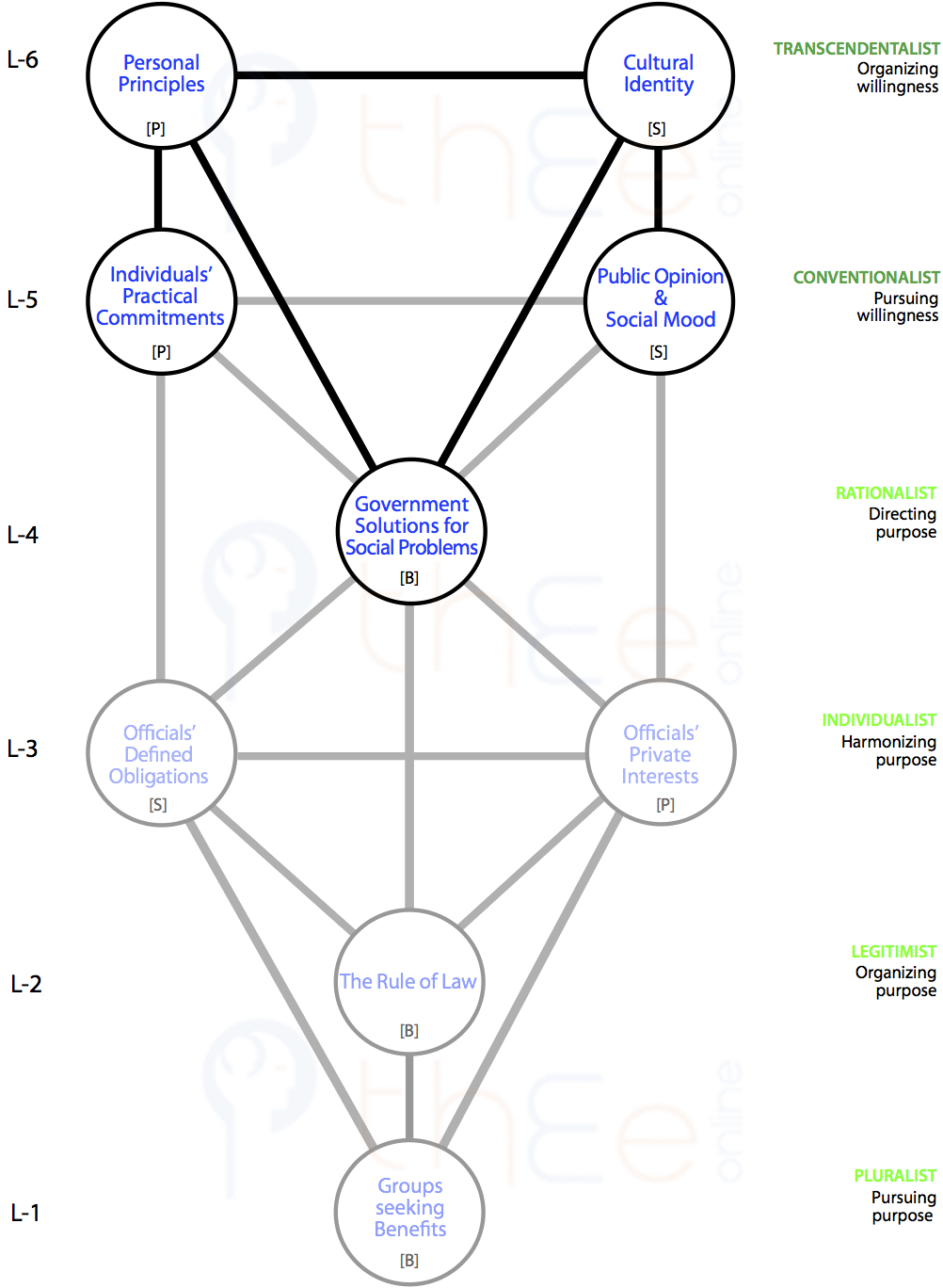The Moral Context of Politics (CL6)
Human beings have developed an ineradicable sense that life involves «something more» than instrumentality and emotionality. For better or worse, this something more gets embodied in society’s moral institutions. These social entities form the context for public sentiment, political activity and governmental choices.
BUT: wasn’t supposed to be the context for ethics or even indifferent to ethics?
and recognizing are two entirely different aspects of our social life.
An is a personal choice based on obligation. Such a choice may be affected by society, but it is not about society and does not bind society. It is about personal integrity.
By contrast, and are about communal living. They are the essential tools to bind individuals to a community, resolve conflicts and produce cohesion. Politics and politicians may be power-mad and self-obsessed, but government is about managing a society and it cannot escape the nature of that society and its institutions.
Government itself is a emerging from an interplay of impersonal values and personal experiences. It is necessarily impacted by the deepest values and cultural prescriptions of the populace.
► Read more about society’s moral institutions.
Impersonal Moral Institutions
Any choice proposed by politicians or pursued by the government touches on areas where certain have authoritative positions as to what is right and good.
So, it is simply impossible for any action affecting the whole of society not to be submitted to moral judgement by these institutions. Conversely, it is impossible for representatives of these institutions not to have a position on which are right and good—and which are evil and reprehensible.
Moral judgements and positions are articulated by individuals but are dependent on the community. The importance that society assigns to «what is right and good» reflects the existence of the Transcendentalist mode in politics.
Is Morality Social or Private?

What is considered «right and good» in society is determined by its natural moral institutions. These institutions—especially popular morality, ethical doctrines, and religion—forge the of a society. Society as a whole possesses the cultural identity, not any particular individual. However, this identity is felt and assumed by each and all. It impacts on government as a powerful controlling force.
Nevertheless, independent of what the cultural position may be, individuals find that they have to social problems, events, political proposals and government solutions.
So the manifests as two Centres:
- —social pole ()
- —private pole ()
In terms of dominance, the () is monolithic and virtually unmanageable, while () are varied and only sometimes activated.
The defines a nation. It has deep roots shaped as much by geography and historical events as social factors like religion. The manifestations of are to be found in language, in cultural myths and symbols, and in persistent beliefs and social structures.
() can shift rapidly, and () may be undone if necessary. However, the is not easily changed, even over centuries. So-called multi-cultural societies including many nationalities become dysfunctional if there is no overarching .
Loss or destruction of leads to utter devastation of the society with desolation and disintegration of its remaining members. This can occur when a more complex culture overwhelms the society, or through members dying off due to habitat destruction or disease.
-
More about natural moral institutions.
-
Explore moral influences within politics.
then
-
Consider the proper rationale for any government solution.
Originally posted: July 2009; Last updated: 12 June 2014.
All posted material is part of a scientific project and should be regarded as provisional. Visitors are encouraged to think through the topics and propositions for themselves. Copyright © Warren Kinston 2009-2016.
All Rights Reserved.